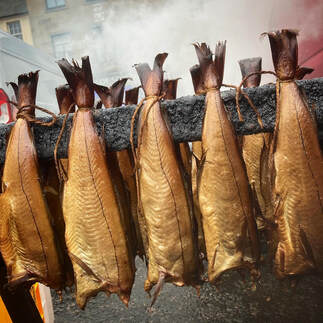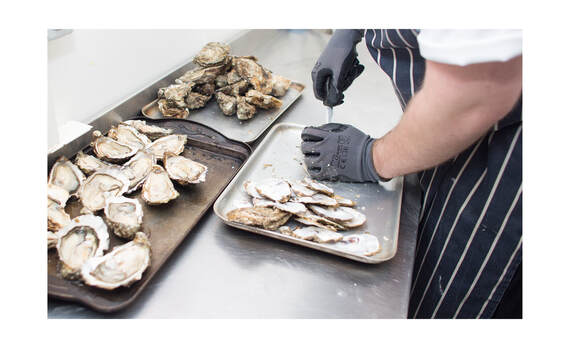 At Open Seas, our hope is that the Good Food Nation Bill is an important opportunity to help repair Scotland’s relationship with our seas, and the food we gather from them. This legislation could ensure Scotland’s future food system is designed to consider and mitigate the damage food production can cause and set the country on a more sustainable path, but what does that mean in practice for our seas? The Bill is likely to be a piece of ‘framework’ legislation - it can legislate for a vision, but won’t necessarily set legal targets, rather place legal duties on the right parts of government to achieve that vision. One of these duties in the Bill (as currently drafted) requires government and local authorities to “have regard, among other things, to the scope for food-related issues to affect outcomes in relation to the environment”, but when you consider food production in Scotland, it’s worth remembering that only around 8% of our land area is suitable for prime arable farming, with only a further 20% suitable for mixed use agriculture. However, Scotland has some of the largest territorial sea areas in Europe, and 63% of UK EEZ sea area is in Scottish jurisdiction, with landings in Scotland representing around 60% of the total economic value of UK landings. Whilst Scotland ‘produces’ a lot of farmed fish and shellfish, the food from our seas is primarily still wild-caught. Seafood production is often portrayed as having a comparatively low carbon and environmental footprint . Whilst this is true of some seafood - particularly low-impact shellfish like mussels and oysters - it is certainly not true of all. Seabed and coastal ‘blue carbon’ ecosystems can sequester and store vast amounts of carbon, but are currently at risk from damage by industrial fishing methods like bottom trawling and scallop dredging. Given the climate and biodiversity crises are the dominant environmental issues of our times, this is clearly a “food-related issue which can affect outcomes in relation to the environment”. Bottom-trawling is very widespread in UK and Scottish waters. An evaluation of trawl impacts on continental shelves found that “[t]he total bottom trawled area in UK seas was about 319,000 km², which is larger than the whole of the country’s land area. Just 11% of the North Sea was unimpacted.” Yet despite the huge impact seafood makes to our food system, it is not specifically mentioned by this bill. The current language around ‘food production’ in the Bill risks exempting wild seafood harvest. We think this is a serious oversight. In parallel we need an urgent investment of resources to improve the evidence base to implement any vision. The Climate Change Committee (CCC) recently released a report on Blue Carbon, highlighting the need for more scientific research on how these processes can affect the carbon cycle. The briefing states: “The UK Government and Devolved Administrations should continue to strengthen protection and restoration in marine areas, and support efforts to sustainably manage marine and coastal ecosystems, giving due consideration to their carbon value.” Clearly the future regulation of our fisheries is an important dimension of any ‘good seafood nation’. Internationally, policy-makers now recognise that the industrialisation of fishing methods has become out of step with the ability of natural systems to replenish themselves. Open Seas contends that the future of Scotland’s seafood needs to be regenerative, inclusive, and cost-effective. We can’t have a ‘Good Food Nation’ without a more sustainability-minded strategy for harvesting and producing seafood. The explicit acknowledgment of the crucial role of wild-harvested seafood in the Bill could be an important step in getting there. For more information, please head over to openseas.org.uk
3 Comments
|
Grant ReekieOpen Seas, Marine Campaigner ArchivesCategories |
Proudly powered by Weebly


 RSS Feed
RSS Feed